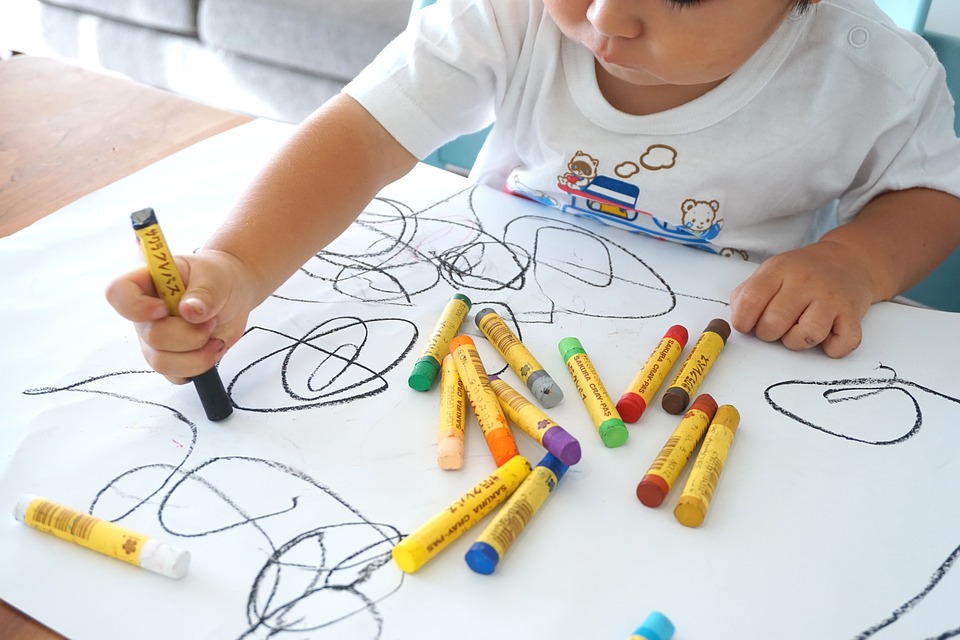

Nurseries could be put in an “impossible” position between promoting hygienic habits in children and saving money if controversial new waste charges go ahead, a campaign group has warned.
The Jersey Early Years Association (JEYA) yesterday hit out against the proposed new charge, which they say will have to be passed on to parents, in a letter to Deputy Eddie Noel, the Minister for Infrastructure.
His department wants to charge “non-households” to dispose of their waste liquids as part of a budget-boosting bid to recuperate the £3.85 million it costs to process the waste each year. The plans have been agreed already by the States in principle, but the day they come into force is due to be debated today.
If imposed, hotels, restaurants and sports facilities could all be forced to pay up to £40,000 for the larger establishments. But JEYA argued that it’s “unfair” to include private nurseries within this group – especially when States institutions will remain exempt.
Their main concern, however, was the “Catch 22” of having to instil “vital” hygienic habits in children such as washing hands after going to the toilet and before food preparation, but while also focusing on cutting down their water usage to curb costs.
Part of the issue, JEYA’s Val Payne told Express, is that nurseries tend to have ‘push taps’ or other easy access versions, which may lead to some water wastage when teaching children how to wash their hands – a small price to pay for the “essential” lesson in sanitation.
 Pictured: Nurseries in Jersey must adhere to the Day Care of Children law, which sets out a responsibility for hygienic practice.
Pictured: Nurseries in Jersey must adhere to the Day Care of Children law, which sets out a responsibility for hygienic practice.
Given children’s lower resistance to illness and the staff’s responsibility to help prevent notorious infections such as Norovirus, nursery cleanliness levels must remain a top priority, with toys and work surfaces scrubbed clean daily.
“There is no choice about how much water is used. Water is used for laundry, nappy changing, cleaning floors, walls, windows, equipment, especially toys on a daily basis; provision of food means a dishwasher is used constantly. Water play must be provided both indoors and out on a daily basis for all ages up to 5 years of age so water usage for nurseries is high,” JEYA explained.
“You wouldn’t expect hospitals to be charged for cleaning their dirty sheets, so why should a hotel be charged to clean their sheets?” Mrs Payne questioned, alluding to the charge’s impact on the tourism sector. “We want to provide a good standard of hygiene too for children, so why would you impose a charge?”
Moreover, JEYA say that parents, who are already burdened by the costs of childcare, will be forced to foot the bill for those additional waste management costs:
“If waste water charges are introduced, the cost will have to be passed on to parents. Only last week it was reported that parents consider nursery fees to be too expensive. How will they feel if they have to pay more to cover a charge that is imposed on the private nurseries by the States when it is the States that impose the Requirements for Registration in the first place?”

Pictured: If hospitals aren't charged to sanitise their used sheets, nurseries should not be penalised for cleaning children's toys and work surfaces.
They’re now calling for further “public debate” on the thorny issue, whose resolution they describe as “critical.”
Deputy Noel confirmed to Express that he had received JEYA's letter yesterday afternoon, commenting: "I have asked officers to look into the likely charge per business if they passed on the full user-pays liquid waste charge to parents. From our initial research based on actual Jersey Water data, we believe that the charge would be below £25 per child per year (50p per week or 10p per day).
"We will of course be replying directly back to the JEYA in due course having had time to consider their letter in more detail."
The news comes after the Environmental Scrutiny Panel last week expressed deep concerns over uncertainty as to what constitutes a “non-householder” and what to do in the case of those who run businesses from home.
But Deputy Noel refused to delay a States debate on the charge, which will happen during today’s sitting.
Comments
Comments on this story express the views of the commentator only, not Bailiwick Publishing. We are unable to guarantee the accuracy of any of those comments.